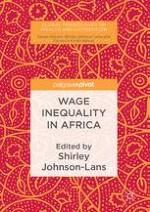2017 | OriginalPaper | Buchkapitel
Gender-Based Wage Differentials and Employment in Post-Apartheid South Africa, 1995–2004
verfasst von : Shirley Johnson-Lans
Erschienen in: Wage Inequality in Africa
Aktivieren Sie unsere intelligente Suche, um passende Fachinhalte oder Patente zu finden.
Wählen Sie Textabschnitte aus um mit Künstlicher Intelligenz passenden Patente zu finden. powered by
Markieren Sie Textabschnitte, um KI-gestützt weitere passende Inhalte zu finden. powered by
